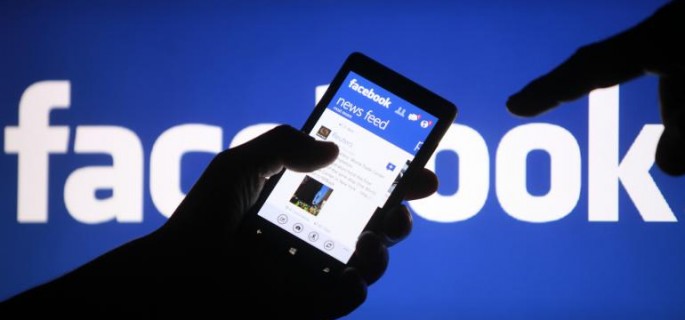5 Ways To Turn Facebook Messenger Into Your Best Customer Service Tool

A lot of your customers are on Facebook—and soon all of them will have the opportunity to message your business. According to Nielsen the Facebook messenger app was the fastest growing app of 2015.
Your customers are on Facebook throughout the day—especially those that work with the internet, so it’s only natural they would much rather stay on the same website rather than switch or pick up the phone to call you. Many of them use Facebook messenger now like text message, chatting with their friends and family throughout the day.
An article last week released in Fortune Magazine highlighted that Facebook messenger has already been rolled out to a few brands such as Hyatt Hotels and it’s been working very well for Hyatt. It’s likely Facebook will slowly roll out Facebook messenger to other brands this year.
Jessi Hempel writes, “Anyone can send Hyatt a message. A blue dot indicates Hyatt is online and available (the same blue dot that indicates a friend is available to chat). Three gray dots pop up, indicating someone is reading the message. Within minutes, a customer service rep answers your question, initialing it so you know an actual person responded.”
In the future it’s painfully easy to chat with customer service. Today it’s mostly just painful to talk to customer service.
I predict Facebook will become a much more brand-friendly tool, not only used by brands to advertise but actually add value through customer service. This is an exciting opportunity for brands—they will need to be ready once Facebook decides to roll out the messenger feature to more brands. Below I’ve written five key areas I encourage you to focus on to launch a successful Facebook messenger program.
1. Make Sure You Hire Highly Skilled Communicators To Run Your Facebook Page
Social media is some of the most public messaging your company will ever do. Many of the bad things that have happened to brands on social media have occurred because of an inexperienced or unprofessional hire. Customers expect a social media response as fast as a text message. That said, you need people who are not only resourceful and well connected at your company, they need to have a strong grasp of style and language. You don’t need to hire experienced social media users, but you do need to hire people who have good judgment, a professional demeanor and a strong understanding of the language you use in a customer service environment. I would encourage you to give someone a little more seasoned the opportunity to run the Facebook page, or if you need to hire someone who costs more money, it’s worth it. Especially when your CEO is happy there hasn’t been any PR nightmares or horrible customer escalations.
2. Use A CRM and Make Sure Your Departments Are Collaborating On It
Virgin Atlantic does a good job of tracking their issues on Facebook with a CRM. If you read the customer interactions on their Facebook page (not through messenger) the agents on Facebook are looking at past interactions through a reference number. This helps the agents on various channels track that customer as they hop from email to phone to Facebook and vice versa. While with Twitter brands battle the anonymity of their customers, on Facebook users have to use their real name. It’s much harder to create an account than on other social networks. That said, it will be easier for you to store customer information from Facebook. In the future it’s likely your customers will easily make payments via Facebook and even buy products and services from you. A good CRM will help you manage all that. If you need a new CRM–and you need to throw out your legacy technology–do it. In the future you will eventually be forced to upgrade so you might as well get it over with now. Old CRMs simply don’t account for new customer behavior.
3. Respond Quickly, Try To Operate As Globally As You Can
It’s important to respond quickly. Some of the best companies today on Facebook–such as Tesco–typically respond within one hour. In the future this might be too slow. The customer expectation from social media is similar to that of chat or even text. For example if someone doesn’t respond to a text message in a few hours, we might think that person is dead (I’m exaggerating to make a point, but seriously). Customers today expect you to respond quickly, and if you don’t they could panic and try all your other channels. This will cost you more money. Customers also expect you to be open for business as much as they need you to be. Remember things don’t stop breaking on nights and weekends.
The best thing you can do for your customer experience operation is to staff it 24-7. If you don’t you risk alienating some of your global customers (and your millennials who expect things right away and all the time). If you want to compete on a global scale, but you only keep U.S. hours, what message are you sending to the customers in Europe or Asia? It’s worth the money.
4. Make Sure Your Agents Are Empowered To Get Things Done
There’s nothing worse than dealing with a customer service agent that has no power. It’s not infrequent customers request a manager because they assume the agent helping them doesn’t have the power to actually do anything for them. You need people in customer service who can work autonomously who don’t need every message approved (this is costly and slows down the interaction). In the end it will save you a lot of money and headache to hire and train people who have good judgment and who are empowered to actually do things for your customers. If you treat your agents like children it’s likely they will act like children. If you treat them like adults it’s likely they will rise the occasion.
5. Don’t Do Anything Creepy
We’ve all experienced creepy things on Facebook. Offenders include people who add us on Facebook that we’ve never met, spammers who invite 1,000 people to an event that isn’t in your state, or friends who reach out through messenger because they want to sell something and the list goes on. These are the things that make Facebook users cringe. So what is the brand’s responsibility to the customer? Being able to communicate with customers via Facebook is a privilege not a right—and brands need to be very careful about privacy. They need to be cautious about overstepping and boundaries. They need to hire agents that don’t take advantage. Last week over at Amazon customer service an agent accidentally gave private information about one user to an attacker who was trying to locate an address. This was not a high tech hack nor was it any complicated security breach. This was a case of human error. This is exactly what brands don’t want. With private information being sent over Facebook, companies need to ensure user privacy. Brands need to vigorously train staff to look out for this misbehavior. Messenger should be used to make life easier for the customer, and add value during a time of need. Additionally brands should not be proactively trying to sell products or sending out marketing messages through Facebook messenger.
Facebook is doing a great job of iterating their product. In his recent viral article in The New Yorker “The End of Twitter,” Joshua Topolsky made the case for Facebook and said:
“In Facebook’s case, the company has demonstrated its mastery of product focus and long-term commitment to user experience. While Mark Zuckerberg’s empire sent users sloshing to and fro on the seas of privacy invasion in its early years, the past five years have seen the company come to dominate and define the concept of a social conversation. If users get abusive on Facebook, they’re dealt with. If someone wants to wage a campaign of noise and intrusion, the repercussions are varied and plentiful. You may not agree with Zuckerberg’s ‘one identity’ concept, but the fact that people have to register their real names has certainly made Facebook a much safer space in which to engage. That’s to say nothing of its mobile and ad offerings, which the company has finally paired elegantly, allowing Facebook to take an even larger bite of mobile-ad dollars. The company closed its latest quarter with revenue up a whopping fifty-one per cent year over year.
I love how Joshua succinctly sums up all of the good decisions Facebook has made in the last few years. We’ve even seen the founder and CEO Mark Zuckerberg evolve and grow into a leader before our eyes. Facebook is leading with strategy on many levels. While the future of Twitter might be murky, we know Facebook will be here for a long time. It will become an even more important piece of your brand’s strategy, and I look forward to watching how customer service plays a big role in that.
Source: Forbes – 5 Ways To Turn Facebook Messenger Into Your Best Customer Service Tool




























